ROCHESTER, Minn. — As her friends return to college this fall, Kelsey DeSmith is way ahead of them.

DeSmith has been taking in-person classes throughout the summer at the University of Minnesota Rochester, or UMR, while also spending 12 hours a week in a paid internship, on her path to graduating with a bachelor’s degree and getting out into the working world in three rather than the conventional four years.
“I do miss having a social life a little bit,” she said of forgoing the traditional long summer break. “But I just want to finish with my education.”
DeSmith, 19, is part of a small group of students pioneering what is meant to become a national initiative that recognizes growing impatience with the time it takes to get through college.
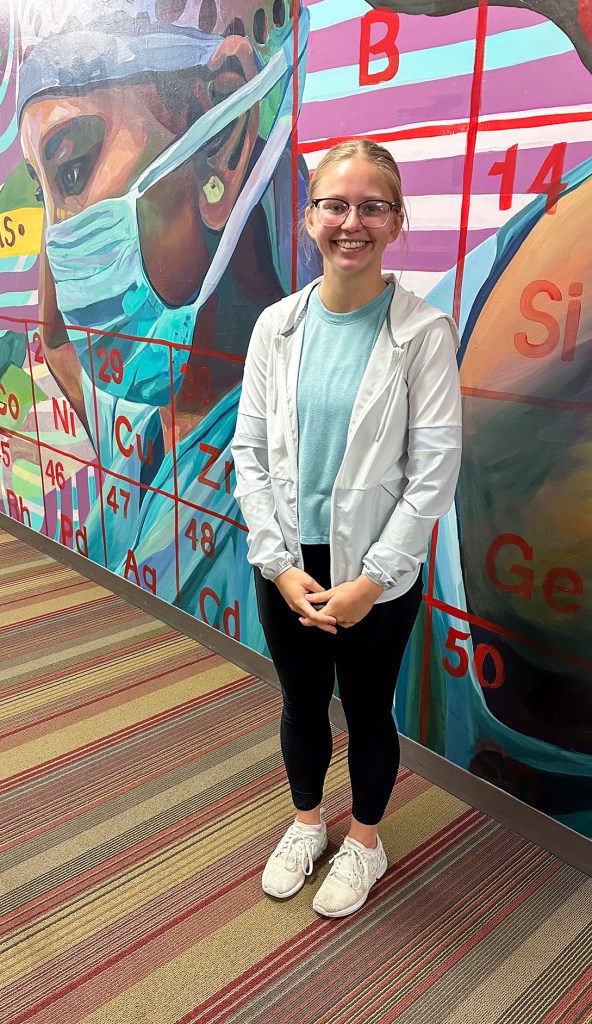
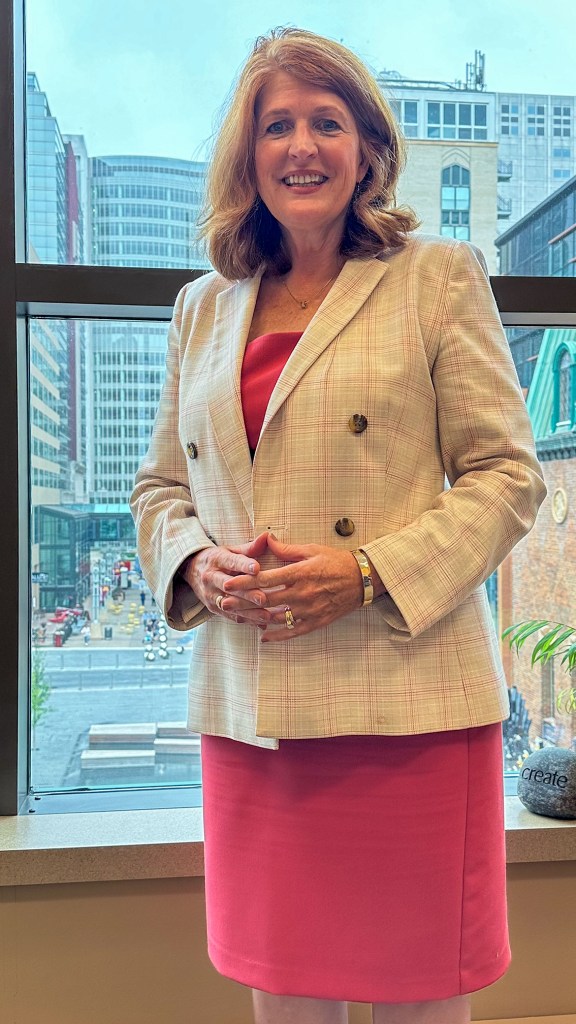
There are 10 students in this program, their presence a quiet challenge to two long-held assumptions about getting a bachelor’s degree: that it has to take four years or longer and that students don’t want to go to college in the summer, when most four-year universities and colleges all but shut down.
“There is waste there, and not only in not getting people forward faster,” said Lori Carrell, chancellor of UMR. “The empty spaces on nearly every college campus are another kind of waste.”
These first three-year-degree students at UMR — about to begin their second year, with the goal of earning bachelor’s degrees in health sciences — are in the vanguard of a wider national experiment called College in 3, involving more than a dozen other universities and colleges that will eventually also offer three-year bachelor’s degrees.
UMR was first among these schools to launch its pilot. That’s in part because the college itself is young, having graduated its first class in 2013, and small, with 617 undergraduates in the last academic year — characteristics freeing it from some of the entrenched traditions that can stifle change in higher education.
Nearly 9 percent of public and more than 7 percent of nonprofit private university and college students are already figuring out ways to graduate within three years.
“We have a real privilege on this campus in that we’re new and were designed to be entrepreneurs and innovators,” Carrell said.
The university has another advantage, visible right outside the window of Carrell’s office: the sprawling Mayo Clinic, the multibillion-dollar medical center with 76,000 employees, which hires about 30 percent of UMR graduates. It’s providing one-year paid internships to each of the three-year-degree-seekers, and a conspicuous career goal.
Related: As students fill summer courses, many ask: Why aren’t all colleges open in the summers?
Other College in 3 institutions planning three-year degrees in at least some majors include the American Public University System, Brigham Young University-Idaho, Indiana University of Pennsylvania, Merrimack College, New England College, Northwood University, Portland State University, the University of Miami, the University of Minnesota Morris, the University of Wisconsin Oshkosh and Utica College.
Still more schools have expressed interest, said Robert Zemsky, a professor of education at the University of Pennsylvania who has long pushed the idea and, with Carrell, co-leads the project.
“Our phone has been ringing,” Zemsky said. And as more institutions sign on, “the whole industry is going to go to this. People won’t be able to say no.”
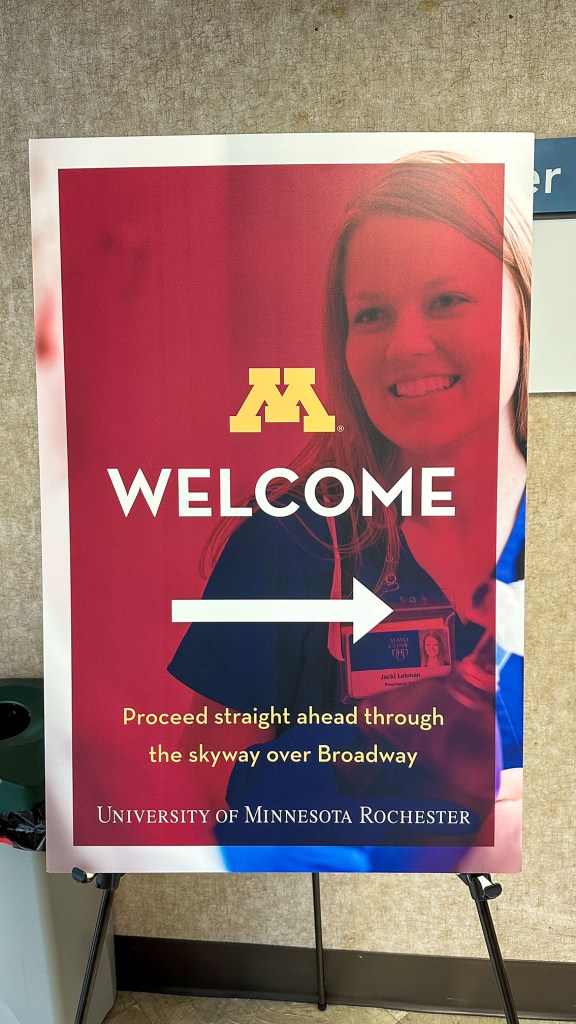
The models vary. Some, like UMR’s, squeeze the usual 120 credits of a four-year bachelor’s degree into three years. Others propose to reduce that requirement to 90 credits, which will need approval from accreditors; representatives of accrediting agencies haven’t yet agreed to this, but say they’re considering it.
Getting buy-in from faculty has been slow, too, especially for teaching in the summer, Zemsky and others said.
“Most faculty really feel pressured to do research, and they do it in the summer,” Zemsky said. “Don’t discount that. That’s a very powerful push against this.”
Fewer than half of students in four-year bachelor’s degree programs graduate within four years. Nearly 40 percent still haven’t finished after five years, and more than 36 percent haven’t earned a degree after six.
Both three-year bachelor’s degrees and college in the summer could help address increasing public skepticism about the value of a higher education. Fewer than one in three adults who haven’t gone to college or finished more than an associate degree now say a degree is worth the cost, according to a survey by the Strada Education Foundation.
That cost is often even higher than many families expect, considering that fewer than half of the students in four-year bachelor’s degree programs graduate within the four years universities advertise. Nearly 40 percent still haven’t finished after five years, and 36 percent haven’t earned a degree after six.
Related: College students are increasingly forgoing summers off to save money, stay on track
That means not only paying more for college, but waiting longer to start earning a full-time income.
“Students need to get out there and work. We no longer have the luxury of going to college for college’s sake,” said Yolanda Spiva, president of the advocacy organization Complete College America.
Not everyone is ready for three-year degrees.
Nearly half of first-year students in a survey by an institute at UCLA said they already find it somewhat or very difficult to adjust to the academic demands of college. A shorter time frame with a heavy course load could also make it harder to play sports, join clubs or get traditional summer internships. And the pressure to go faster can be tough on students at a time when more than one in five say that their mental health is poor.
“Students need to get out there and work. We no longer have the luxury of going to college for college’s sake.”
Yolanda Spiva, president, Complete College America
Shifting the timetable also makes it tough to explore new subjects, which has always been a part of college; students who start on a three-year degree path will have trouble finishing on time if they change their majors.
That’s a bigger consideration than it might seem. Seven percent of freshmen haven’t yet decided on a major when they enter college, one survey found; even after students settle on a major, 30 percent change it and 10 percent switch majors two or more times, the U.S. Department of Education reports.
Still, nearly half of prospective college students are anxious to get college out of the way, saying they can succeed with less than four years of postsecondary education, a survey by the ECMC Group found. Rising numbers of high school students are choosing to get a head start on college credits by signing up for dual enrollment and Advanced Placement courses.
Nearly 9 percent of public and more than 7 percent of nonprofit private university and college students are already figuring out ways to graduate within three years, even without a formal pathway, according to the National Student Clearinghouse Research Center.
Related: Momentum builds behind a way to lower the cost of college: A degree in three years
It takes discipline to push through college faster. To DeSmith, that was the appeal, after a high school career during which she played three sports and was part of Future Farmers of America and the Fellowship of Christian Athletes, on top of her studies.
“I like being busy,” DeSmith said cheerfully. “It wasn’t so much the graduating early” that drew her to UMR’s three-year program, she said. “It was the challenge of taking all of these credits and the multiple classes at the same time.”
But the College in 3 project envisions helping less well-prepared students through to a degree in three years, too, including those who might otherwise churn through school directionless.
“I do miss having a social life a little bit. But I just want to finish with my education.”
Kelsey DeSmith, student, University of Minnesota Rochester
It seeks to do this by providing support that includes not only academic counseling and feedback about goals but help with personal problems and the pressures of the high-intensity program, said Bridget Tetteh-Batsa, a UMR student success coach.
“It’s stressful. We can anticipate that for an accelerated program,” Tetteh-Batsa said. “But when students feel a sense of belonging, they are likely to persist and graduate.”
So far none of UMR’s first three-year cohort has quit. In conventional college programs, nearly a quarter of students drop out between their first and second year.
“We’re designing for all students,” Carrell said. “All students, if they’re willing to stay in the summer, can make their way through this. This is built for everybody and especially focused on the students with whom we haven’t been successful in the past.”
Related: One college finds a way to get students to degrees more quickly, simply and cheaply
Even if families weren’t frustrated at the more than four years it takes most students to earn bachelor’s degrees these days, employers need a faster supply of educated workers, Carrell said — especially in fields such as health care and technology.
“We have a number of our areas where it is increasingly difficult to recruit. The labor market’s getting tighter,” said Mark Brown, operations administrator in the Department of Laboratory Medicine and Pathology at the Mayo Clinic, who supervises UMR interns.
Meanwhile, traditional colleges are losing customers to career-focused, faster-paced competitors such as online universities and certificate providers.
“This could become the trend for a reframing of college, that it doesn’t have to take four years,” said Spiva, who finished college herself in three years.
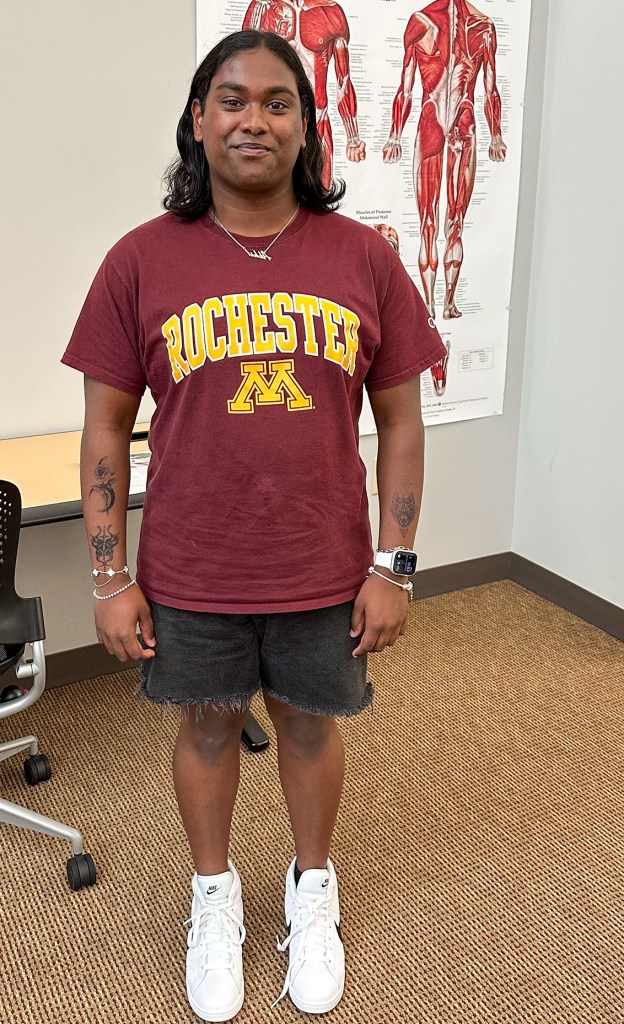
Demand for summer classes also speaks to this desire. Many students already on the path to bachelor’s degrees are finding ways to get credits out of the way in the summer, often at community colleges if their own campuses are closed. Nearly 7 million college students overall took courses in the summer, online or in person, in 2020, the most recent year for which the figure is available, the National Student Clearinghouse reports.
Course sizes tend to be smaller in the summer, and students pay by the course rather than a flat tuition fee, making the experience cheaper, said Christopher Wiley, director of UCLA’s Summer Sessions, which he said enrolls as many as 15,000 students, both online and in person — a third of them non-UCLA students. Demand was up this summer, Wiley said.
More than half of all bachelor’s degree-seeking students who finished college in 2017 enrolled in at least one course during the summer, earning an average of 9.2 credits, according to the most recent available figures from the Education Department. And since 2018, students taking summer courses have been able to help pay for them with up to $1,500 in Pell Grants.
Akhil Kollengode, who is also part of the UMR pilot, doesn’t mind taking courses in the summer. He likes it.
“All through high school, I always thought [being out of school in the] summer was sort of a drag,” said Kollengode, 19, after a quick coffee run during a break from class. “I always wanted summer to be over so I could go back to school.”
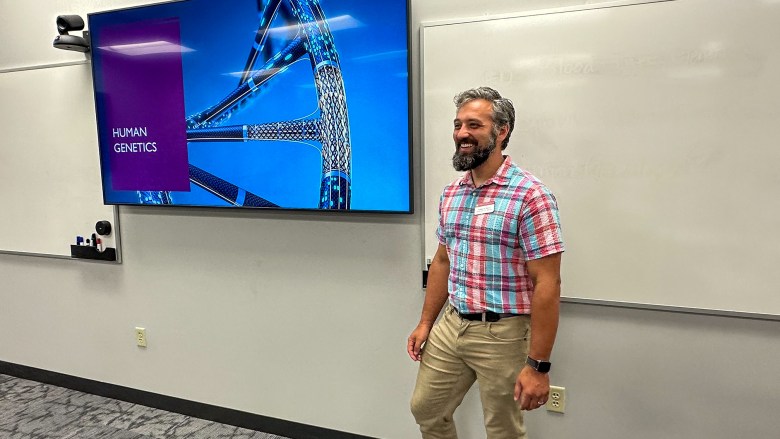
Kollengode and his classmates were in the one occupied classroom in an otherwise deserted UMR building on an August Monday, studying human genetics with Associate Professor Andrew Petzold.
They got a week off in July and another at the end of August (breaks are important, but “you don’t necessarily need three months off in the summer to do that,” Carrell said), live in the same university housing and socialize with one another, since they’re the only students here. “We’re all together, all the time,” DeSmith said, laughing.
Petzold, who helped design the three-year program, said he missed the “unwinding time” of summer. But “it’s also nice to still be in that academic mindset. It’s just quieter and hotter.”
As for the students, “they see the value of being done earlier,” he said. “They see the value of, ‘Why waste time during the summer when I can move forward with my degree?’ ”
This story about bachelor’s degrees in three years was produced by The Hechinger Report, a nonprofit, independent news organization focused on inequality and innovation in education. Sign up for our higher education newsletter.



At The Hechinger Report, we publish thoughtful letters from readers that contribute to the ongoing discussion about the education topics we cover. Please read our guidelines for more information. We will not consider letters that do not contain a full name and valid email address. You may submit news tips or ideas here without a full name, but not letters.
By submitting your name, you grant us permission to publish it with your letter. We will never publish your email address. You must fill out all fields to submit a letter.